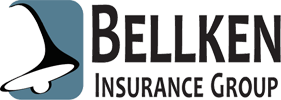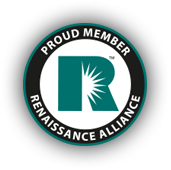Serving Customers Safely: 5 Common Liability Risks for Florida Businesses
See How We're Different
or call us: 954-233-0733
Running a business comes with inherent risks, and understanding these risks is crucial for ensuring the safety of your customers. In Florida, where businesses thrive, it is important to be aware of the
common liability risks that can arise. By being proactive and
implementing risk management strategies, businesses can protect themselves and their customers. This article will explore the various liability risks that Florida businesses face and provide strategies for minimizing those risks.
Understanding Liability Risks
Before diving into the specific risks, it's essential to understand what liability means in the context of business. Liability refers to the legal responsibility a business has for any harm or damages caused to individuals or property. When a customer is injured or suffers losses due to a business's actions or negligence, the business may be held liable and face legal consequences.
Liability in business is a complex and multifaceted concept that requires careful consideration. It encompasses various aspects, such as financial obligations, legal obligations, and ethical responsibilities. In today's litigious society, businesses must be proactive in understanding and managing their liability risks.
Defining Liability in Business
In the business world, liability can arise from numerous situations, including accidents, faulty products, employee misconduct, data breaches, and professional errors. Each of these risks has its unique implications, and businesses must be well-prepared to address them.
Accidents can occur in any business setting, from slip and fall incidents to workplace injuries. It is crucial for businesses to maintain a safe environment and implement proper safety protocols to minimize the risk of accidents. Additionally, businesses that manufacture or sell products must ensure that their products are safe for consumers, as product liability claims can arise from defective or dangerous products.
Employee misconduct is another area where businesses can face liability risks. This can include actions such as harassment, discrimination, or negligence on the part of employees. It is essential for businesses to have clear policies in place to prevent and address such misconduct, as well as provide proper training and support for employees.
Data breaches have become a significant concern in the digital age, with businesses collecting and storing vast amounts of sensitive customer information. A data breach can result in financial losses, reputational damage, and legal liabilities. Businesses must invest in robust cybersecurity measures and protocols to protect customer data and mitigate the risk of data breaches.
Professional errors, particularly in industries such as healthcare, legal, or financial services, can lead to severe consequences for businesses. Errors or omissions in providing professional services can result in financial losses for clients and potential lawsuits. It is crucial for businesses in these industries to have comprehensive professional liability insurance and stringent quality control measures to minimize the risk of errors.
Importance of Risk Management in Business
Risk management is the process of identifying, assessing, and mitigating potential risks. By implementing effective risk management strategies, businesses can minimize the likelihood of accidents, injuries, and legal liabilities. It is crucial for Florida businesses to prioritize risk management to protect their customers and their own interests.
Effective risk management involves a systematic approach that includes identifying potential risks, evaluating their potential impact, and implementing measures to mitigate or eliminate those risks. This can include implementing safety protocols, conducting regular risk assessments, providing employee training, and maintaining proper insurance coverage.
Furthermore, businesses should establish a culture of risk awareness and responsibility throughout their organization. This involves fostering open communication channels, encouraging employees to report potential risks or hazards, and regularly reviewing and updating risk management strategies.
By prioritizing risk management, businesses can not only protect themselves from potential legal liabilities but also enhance their reputation and build trust with their customers. Customers are more likely to engage with businesses that demonstrate a commitment to safety and responsible practices.
Overview of Common Liability Risks
Now, let's delve into the specific liability risks that Florida businesses commonly face.
Premises Liability: Risks and Prevention
Premises liability refers to the legal responsibility businesses have for injuries that occur on their premises. Slip and fall accidents, inadequate security measures, and dangerous conditions are some examples of premises liability risks. To prevent such incidents, businesses should regularly inspect their premises, maintain proper lighting, and promptly address any hazards that arise.
For example, a restaurant owner in Florida should ensure that the dining area is well-maintained, with sturdy tables and chairs, and that the floors are regularly cleaned to prevent any slips or falls. Additionally, installing security cameras and hiring security personnel can help deter potential criminals and reduce the risk of theft or assault on the premises.
Furthermore, businesses should also consider implementing safety protocols, such as providing training to employees on how to handle hazardous situations and ensuring that emergency exits are clearly marked and easily accessible.
Product Liability: Risks and Mitigation
Product liability arises when a business's product causes harm or injury to a customer. This can occur due to defects in design, manufacturing, or inadequate warnings. To mitigate product liability risks, businesses should ensure the quality and safety of their products, conduct thorough testing, and provide clear instructions and warnings to customers.
For instance, a Florida-based electronics company should have a rigorous quality control process in place to identify and rectify any potential defects in their products. They should also conduct extensive testing to ensure that their products meet safety standards and regulations.
In addition, businesses should provide clear and comprehensive instructions on how to use their products safely. This may include warning labels, user manuals, and online resources that educate customers on potential risks and how to avoid them.
Furthermore, businesses should have a system in place to track and address any customer complaints or reports of product issues. This demonstrates a commitment to customer satisfaction and can help identify and resolve potential product liability concerns before they escalate.
Employment Practices Liability: Risks and Solutions
Employment practices liability encompasses the legal risks associated with employee-related issues, such as discrimination, harassment, wrongful termination, and wage violations. To minimize these risks, businesses should have clear policies and procedures in place, provide regular training to employees, and promptly investigate and address any complaints or issues that arise.
For example, a Florida-based human resources consulting firm should have a comprehensive employee handbook that outlines the company's policies on equal employment opportunity, anti-discrimination, and harassment prevention. Regular training sessions should be conducted to ensure that employees are aware of their rights and responsibilities in the workplace.
In addition, businesses should establish a confidential reporting system that allows employees to report any concerns or complaints without fear of retaliation. This encourages open communication and allows for prompt investigation and resolution of any issues.
Furthermore, businesses should regularly review and update their employment practices to ensure compliance with changing laws and regulations. This may involve consulting with legal professionals or industry experts to stay informed about best practices and potential risks.
Cyber Liability: Risks and Protection
In the digital age, cyber liability has become a significant concern for businesses. This refers to the risks associated with data breaches, hacking, and the unauthorized access or use of sensitive customer information. To protect against cyber liability, businesses should invest in robust cybersecurity measures, regularly update their software and systems, and educate employees on safe online practices.
For instance, an e-commerce company based in Florida should implement strong encryption protocols to secure customer data and ensure that their website and payment gateways are regularly tested for vulnerabilities. Regular software updates and patches should be applied to address any known security flaws.
Additionally, businesses should provide cybersecurity training to employees to raise awareness about common cyber threats, such as phishing emails and social engineering scams. Employees should be educated on how to create strong passwords, recognize suspicious online activities, and report any potential security breaches.
Furthermore, businesses should have a comprehensive incident response plan in place to minimize the impact of a cyber attack. This may involve working with cybersecurity experts to develop strategies for detecting, containing, and recovering from security incidents.
Professional Liability: Risks and Countermeasures
Professional liability, also known as errors and omissions liability, is specific to businesses that provide professional services or advice. This includes professions like lawyers, architects, doctors, and consultants. To mitigate professional liability risks, businesses should maintain high professional standards, obtain appropriate insurance coverage, and maintain detailed records of client interactions and advice.
For example, a Florida-based law firm should ensure that their attorneys adhere to ethical guidelines and professional standards when providing legal advice to clients. Regular training and continuing education programs can help attorneys stay updated on changes in laws and regulations.
Additionally, businesses should obtain professional liability insurance to protect against potential claims of negligence or errors in their professional services. This insurance coverage can provide financial protection in the event of a lawsuit or settlement.
Furthermore, maintaining detailed records of client interactions, advice given, and any agreements or contracts can help businesses defend against professional liability claims. These records can serve as evidence of the care and diligence exercised in providing professional services.
In conclusion, understanding and addressing common liability risks is essential for Florida businesses to protect themselves and their customers. By implementing preventive measures, businesses can minimize the likelihood of accidents, injuries, and legal disputes, ultimately safeguarding their reputation and financial well-being.
Florida-Specific Business Risks
Beyond these common liability risks, Florida businesses also face unique challenges and circumstances that warrant attention.
Florida, known as the Sunshine State, is not only a popular tourist destination but also a hub for various industries. However, with its diverse landscapes and climate, businesses in Florida encounter specific risks that require careful consideration and preparation.
Unique Liability Risks in Florida
Florida's diverse landscapes and climate can present unique liability risks. For example, businesses located in coastal areas may face increased risks related to hurricanes, flooding, and severe weather events. The state's long coastline exposes businesses to the potential devastation caused by these natural disasters, including property damage, supply chain disruptions, and business interruption.
Moreover, businesses engaged in outdoor activities such as water sports or amusement parks need to be aware of the additional risks associated with these industries. While these activities attract tourists and locals alike, they also come with inherent dangers. It is crucial for businesses in these sectors to prioritize safety measures, provide comprehensive training to employees, and regularly inspect and maintain equipment to minimize the risk of accidents and injuries.
Florida's Business Laws and Regulations
Florida has specific laws and regulations that businesses must adhere to. From licensing and registration requirements to product safety regulations, compliance with these laws is critical for avoiding legal liabilities. Failure to comply with the state's regulations can result in fines, penalties, and even the suspension or revocation of business licenses.
Businesses should stay up to date with changes in regulations and work with legal experts to ensure compliance. For instance, Florida has strict regulations regarding the sale and distribution of alcoholic beverages, and businesses in the hospitality industry must navigate these laws to avoid legal consequences.
Additionally, Florida's business laws also encompass employment regulations, including minimum wage requirements, anti-discrimination laws, and workers' compensation coverage. Employers must understand and comply with these laws to protect their employees' rights and avoid costly legal disputes.
Furthermore, Florida's business landscape is influenced by its unique tax laws. The state does not impose a personal income tax, making it an attractive location for individuals and businesses. However, businesses must navigate the state's sales tax regulations and understand their obligations to collect and remit sales tax appropriately.
In conclusion, Florida's business environment presents both opportunities and challenges. Understanding and addressing the state's unique liability risks, complying with its laws and regulations, and staying informed about industry-specific requirements are essential for businesses to thrive in the Sunshine State.
Strategies for Minimizing Liability Risks
To protect your business and customers, it is essential to implement proactive strategies for minimizing liability risks.
Implementing Safety Protocols
Develop and enforce comprehensive safety protocols that address potential risks and hazards in your business operations. This includes regular inspections, preventive maintenance, and training employees on safety procedures. By making safety a priority, you can minimize the likelihood of accidents and injuries.
Training Employees on Risk Management
Your employees play a crucial role in mitigating liability risks. Provide thorough training on risk management, customer safety, and proper procedures for handling different situations. Regularly update training programs to address new risks and keep employees informed.
Investing in Liability Insurance
Liability insurance is a vital tool for risk mitigation. It provides financial protection in case of accidents, injuries, or lawsuits. Consult with an insurance professional to determine the appropriate coverage for your business, considering the specific risks you face.
By taking these steps, Florida businesses can protect themselves and their customers from the common liability risks that arise. Being proactive and staying informed about changing regulations and industry best practices will help businesses maintain a safe and secure environment for all. Remember, serving customers safely is not only ethically responsible but also critical for the long-term success and reputation of your business.
